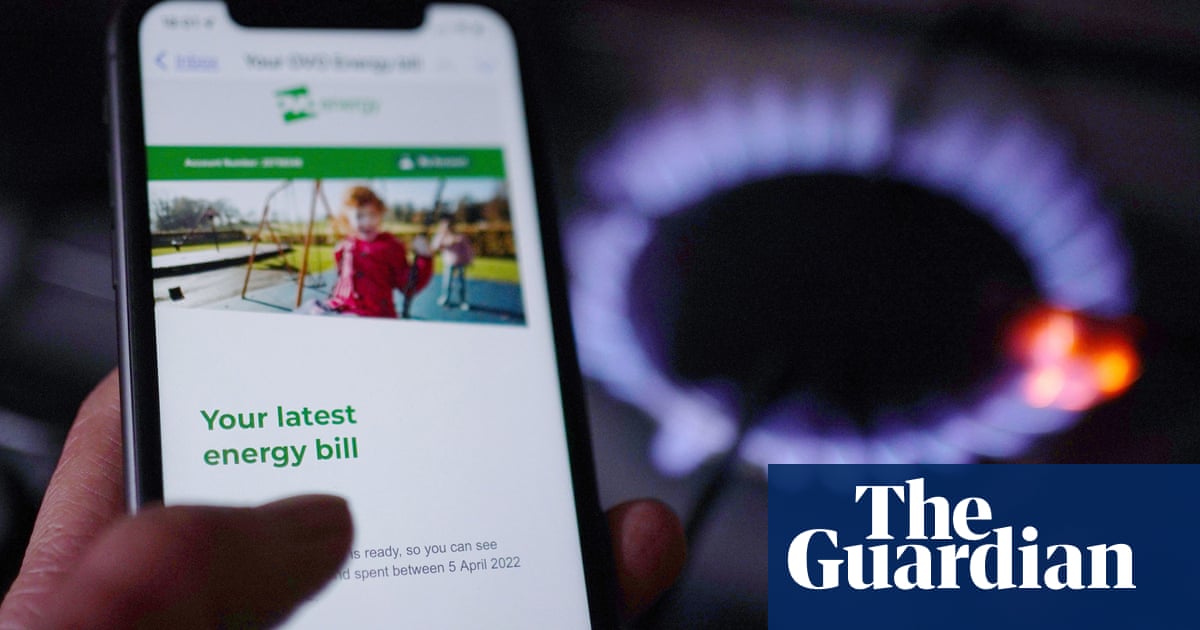
Ministers are coming under growing pressure to intervene to soften the impact of the cost of living crisis amid fresh warnings that millions of low-income households risk sliding into further debt, hunger and poverty.
More than 50 charities have warned that the consequences of driving through a below-inflation benefit pay rise in April will be “unthinkable” for households already struggling to cover soaring food and energy costs and a rise in national insurance.
They urged ministers to scrap plans to uprate all benefits by 3.1% and instead use the spring statement next week to help struggling families by pushing up benefits in line with inflation, which is projected to be running at 7.25% by April.
Meanwhile, the former prime minister Gordon Brown warned on Wednesday that anxiety over the cost of living crisis had replaced the pandemic as the biggest source of worry in the public’s minds.
“The cost of living crisis has really taken over from the Covid crisis as a real catastrophe for people. What you can see from the polling is that the cost of living crisis is by far the biggest priority for people,” Brown said.
The government is understood to be reluctant to commit to extra spending but is said to acknowledge concerns over the critical “starve or freeze” choices faced by low-income families as energy and food bills soar way beyond incomes.
A letter signed by charities including the Child Poverty Action Group, the Joseph Rowntree Foundation (JRF), Citizens Advice and Save the Children UK warned that a 3.1% uprating would amount to the second real-terms cut to universal credit in six months, after the withdrawal in October of the £20-a-week Covid uplift.
“A second cut to benefits in six months is unthinkable. The government should increase benefits by at least 7% in April to match inflation, and ensure support for housing costs increases in line with rents. All those struggling, including families affected by the benefit cap, must feel the impact,” the letter said.
Nine million low-income families will be £500 a year worse off on average if the planned below-inflation increase in universal credit and other means-tested benefits is introduced as planned in April, according to the JRF.
Separately, an open letter signed by seven City mayors and more than 50 local authority leaders warned that the number of people in fuel poverty will rise by 3 million to 7.7 million by April – and could rise to as many as 12 million by October if the chancellor does not take remedial action.
Meanwhile, the UK’s largest food bank network, the Trussell Trust, said the cost of food and bills had forced two in every five universal credit claimants into debt, with one in six reporting they had had to rely on a food bank at least once since December.
Its survey found that 33% of universal credit claimants surveyed had gone at least one day in the past month either without eating or restricting themselves to a single meal. A third said they had been unable to afford to heat their home for more than four days over the past month.
Labour’s shadow work and pensions secretary, Jonathan Ashworth, said: “Tory ministerial decisions mean families are now left struggling with rising energy bills so unaffordable, tax rises so punishing and universal credit cuts so severe that hundreds of thousands will be pushed into poverty, facing impossible choices between heating and eating.”
The Department for Work and Pensions was approached for comment.












